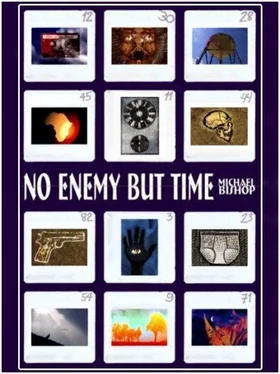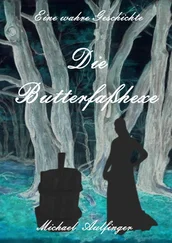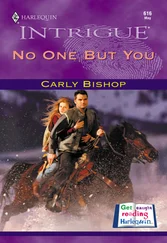“What do you suggest?” he asked Hollis.
“There’s no official alternative to yielding him to the Spanish authorities.”
“What would happen then?”
“Into a charitable institution of some kind, I’d imagine, probably a church-run orphanage.”
“With what chances for adoption?”
“As I said, the kid has a Willie Mays profile. Spanish girls date Negro enlisted men, but usually—if you want my opinion—in the hope of bagging American husbands and ending up in the Land of Levis and Lincoln Continentals. I don’t really see the denizens of Seville banging on the orphanage door for the right to take John-John home.”
“He belongs with his mother,” Colonel Unger observed.
“Who has completely disappeared, sir.”
“Why didn’t you arrest her when you knew where she lived and had her dead to rights on that black-marketeering business?”
“Miss Ocampo was really just small potatoes, sir. We wanted the people who were buying from her, then reselling the stuff at higher prices in other parts of the country.”
“Did you get them?”
“No, sir. Not yet, that is.” Hollis looked uneasy.
“Which brings us back to square one. Still, the boy’s at least partly one of ours and the Monegals want to give him a home.”
As if reporting a vivid daydream, Hugo said, “If we had a birth certificate showin’ that John-John was delivered at the clinic in San Pablo, why, it would be easy to take him stateside with us this November.
Very easy.”
“That’s something we could do, a birth certificate,” said Hollis.
“Why don’t you do it, then?”
“We will,” Hollis said, gesturing abruptly at the Monegals with his sunglasses. “Of course, they’ll still appear to be toting someone else’s kid out of the country.”
“My hair is as curly as his,” said Hugo Monegal, “and my eyes are as black. A mestizo somewhere in the family past showin’ up in this niño . Who would challenge my fathership of John-John, my own wife’s baby?” He smiled shyly at Jeannette. “This is a virtuous woman, Major Hollis.”
“God,” murmured the virtuous woman.
Aubade
Aftermy run-in with the Minid sentry, I walked back toward Lake Kiboko, venturing quite often into the savannah bordering the forest strip to the south. Other bands of habilines must be about, I told myself, as well as other specimens of A. robustus and surely a few of their ancestral cousins, A. africanus . It was impossible to know in what proportions to expect these three primate species to be coinhabiting the landscape, and because I saw only gazelles, antelopes, zebras, and a distant pride of lions, I was not likely to solve this problem in a single afternoon.
My transcordion did not work, and in the event of its failure Kaprow had advised me to return to the omnibus and signal my well-being by commanding the Backstep Scaffold to retract. However, I could not command what I could not see, and although at the lakeside the sun was dropping toward the violet ramparts of the western Rift, Kaprow and his cohorts had still not extruded the scaffold through the bomb-bay doors of the omnibus. The twilight sky was entire. I wanted a plug to be pushed out of it, exposing the copper and chromium viscera of our time machine—but what I wanted and what I got were two different things.
Because sunset traditionally marks a hair-trigger truce at an African watering site, I found that many large animals—elephants, rhinos, giraffids—were clustering out of the dusk to drink. Knowing that my nevertheless drew it. My vantage above the lake gave me a degree of safety, for the invasion was occurring on either side of my small promontory of tuff—but the scaffold still did not descend, and a hairy elephantine creature not sixty feet away had begun to writhe his trunk at me, as if my smell offended him.
There were trumpetings and snorts from other visitors to the lake, too, and the precariousness of my position would increase as the darkness thickened.
“ I ’ m waiting,” I tapped out on my transcordion. “ It’s sunset, and I ’ m waiting. Please drop the scaffold.”
No reply in my transcordion’s display window. No miraculous lambent parting of the Pleistocene air.
Had White Sphinx stranded me in this place? I had no one to talk to here, no one to tell my troubles to.
Even Kaprow and Blair, my liaisons to another reality, had tuned me out. A lost cog in the pitiless organic machinery of the veldt, I told the varieties of my fear the way a nun tells her rosary beads.
“This is getting you nowhere, Kampa.”
I clambered down from the lakeside promontory to the plain, where I spent the last twenty minutes before nightfall gathering brushwood, antelope chips, and stegodon patties for a fire. The malicious lavender sunset pitched over into darkness about the time I was piling this fuel at the base of a kopje, a broad outcropping of granite on the steppe, about a half mile from the lake, where I hoped to avoid the gathering animals. I lit the brushwood and dried animal droppings with a match from my Eddie Bauer stove-cum-survival-kit, then scooted high up onto the outcropping to enjoy my bonfire. Nocturnal predators would be instinctively wary of the blaze, and there was no way for them to leap up behind me from the plain. Plenty of fuel and an impregnable position—I was set for the night. Although I finally realized that I had eaten only once that day, my fatigue disciplined my hunger pangs and I abstained from a brief hunting trip into the savannah.
It was a long night, almost interminable. I could not let myself drift off into a deep sleep—into dreams of my own far-future past—for fear the fire would go out. My kopje was a lifeboat in an ocean of grass, and once the lantern in its prow was extinguished, strange creatures from the pelagic prairie would crawl aboard to devour me. I dozed, but always with an ear to the dangers of the night. Unless you have camped out in the bush, you have never heard such an eerie racket: the quarreling of hyraxes, the hose-pipe bleating of pachyderms, the madman laughter of hyenas. I huddled on my rock, trying to convince myself that this night was no different from the ones I had spent with Babington in Lolitabu.
The lesson did not take. At length I had recourse to my reduced-print Bible and field guide. With penlight and magnifying glass I spent an hour or so reading the Old Testament by the erratic fire flicker.
Although I could not keep my mind on the words, this activity helped pass the time, and when I finally ran across a passage in Proverbs that spoke to my heart, I committed it to memory and repeated it as a mantra until the frail breaking of dawn.
“ The conies are but a feeble folk, yet make they their houses in the rocks… ”
The world quieted while I was repeating this passage, and I realized that I had lived almost an entire twenty-four-hour period in the Early Pleistocene. I had made prehistory. None of Kaprow’s other volunteers had ever gone back even a thousandth as far, and only the physicist himself had remained longer on a single drop-back than I had already been on mine. It struck me that there ought to be a party hat, a magnum of champagne (a domestic variety would do nicely), and a bullroarer in my survival kit.
There wasn’t even a pineapple Danish. To celebrate my accomplishment, I would have to hunt up my own breakfast and down it with gusto.
That was when I heard an otherworldly singing reverberating over the steppe, like the cries of disembodied saints. It came from the hills to the east, the general vicinity of Helensburgh. I got to my feet and cocked my head to listen to it. A wordless canticle of untrained habiline voices greeting the dawn. An aubade, call it. It was heartbreakingly fervid, not sweet or pristine, but rough-edged and full of raw conviction. An anthem.
Читать дальше



![Ally Carter - [Gallagher Girls 01] I'd Tell You I Love You But Then I'd Have to Kill You](/books/262179/ally-carter-gallagher-girls-01-i-d-tell-you-i-lo-thumb.webp)








